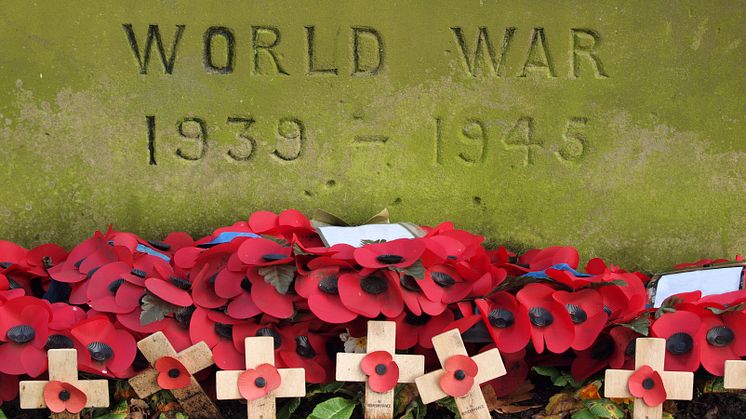
Press release -
Wartime youth crimes shine light on London riots
A rose-tinted collective memory of the ‘Blitz Spirit’ ignores the prevalence of juvenile delinquency at the time, says a Northumbria University researcher.
Margot Scott, a Master of Research student in Creative Writing, argues that reference to crime has been edited out of most people’s recollections of the war years but, in fact, her research shows there is a harsh reality behind the myth of blanket social cohesion.
In her background research for a novel set in war-time South Shields, Margot interviewed people who lived through the Blitz, examined documented oral history material and accessed wartime newspapers, finding that the extreme conditions of the period sparked an increase in crime as well as cooperation among citizens.
Investigating criminal activity during the Second World War, the research focuses on the Cafe de Paris bombing and juvenile crime. It considers how extreme circumstances can make criminals of the ordinary citizen and exacerbate conditions for the marginalised members of society.
She argues that her findings have links to contemporary concerns raised by the London Riots of 2012.
“There is a collective golden memory of the past but the local and national newspapers of the day tell a different story,” she explains. “The amount of juvenile crimes reported in local and national papers was unbelievable.
“In 1941 The Times expressed concerns about the rise of juvenile crime and there was lots of debate as to what the cause was. Writers blamed it on their fathers being away at war, the break-down of family routine caused by air raids, the influence of gangster films, and a lack of youth clubs to occupy young people. The parallels with explanations of the London Riots – absent fathers, family break-down, boredom, and violent films or music – are striking.
“However, the underlying issue was poverty. People who were already poor and struggling were being squeezed by the surrounding conditions.”
Margot’s research indicates that the squeezed conditions and rationing of food and provisions also pushed many ‘upstanding’ citizens to break the law by participating in the black market.
Margot said: “Everyone knew where things could be bought that had ‘come off a ship’. Many previously law-abiding people were finding themselves tinged with something that they wouldn’t have normally been involved in. This mirrors the accounts of many who became first-time offenders during the London Riots.
“My research doesn’t deny the Spirit of the Blitz, it just recognises that there was a light and dark side to it. As well as high levels of juvenile crime there were also the many stories of people going above and beyond the call of duty to help their communities. After the London Riots, entire communities came together to help clear up the mess left behind.”
Margot’s research paper, entitled ‘The Spirit of the Blitz: The Harsh Reality behind the Myth’ is illustrated with case studies from her novel, ‘Always Ready’. It will be presented at a Master of Research Symposium at Northumbria University next month (May).
The session, which has the theme ‘Cultural Connections: The Language of Research’, takes place on Thursday 2 May. The one-day event is open to the general public and brings together an exciting collection of papers from a new generation of researchers.
Postgraduate students from Northumbria’s Master of Research programme will share their research in the Arts, Creative Writing, English Literature, Gender Studies and History. The panels will focus on a wide range of issues including: crime in the North East, the military, social media, and the construction of female identity.
Among the presentations is one by MRes English Literature student, Kate Taylor, which looks at the reasons why significantly more women than men are in mental health institutions around the world. She explores whether society provides a more hostile environment for women, thus triggering higher mental illness rates, or whether psychiatric care is founded on the idea of the male psyche as the norm.
The Master of Research Symposium will be held in Northumbria University’s Lipman Building, Sandyford Road, on Thursday 2 May from 10.30am – 7.30pm. The event is free but those wanting to attend must register their interest by emailing mres.symposium@gmail.com.
Topics
Categories
Northumbria is a research-rich, business-focussed, professional university with a global reputation for academic excellence. To find out more about our courses go towww.northumbria.ac.uk
If you have a media enquiry please contact our Media and Communications team at media.communications@northumbria.ac.uk or call 0191 227 4571.









